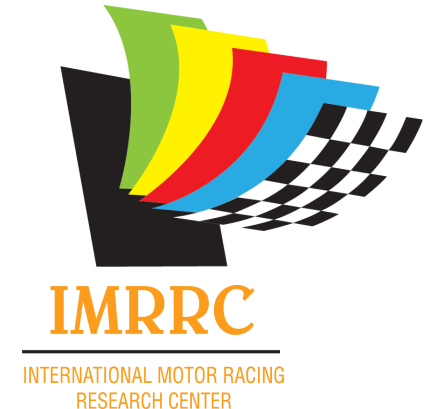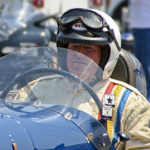
- This event has passed.
Schedule for 2022 Symposium – Day 1
November 4, 2022 @ 8:00 AM - 5:00 PM

Friday, Nov. 4
Morning Session, 9:00 a.m. to noon
James Miller | F1: From Circus to Media Spectacle
James Miller’s engagement with F1 includes chatting about race strategy with Nicki Lauda at the 1977 USGP, where Lauda won his second world championship. Now it involves at-home viewing of real-time, in-car camera images on a flat-screen TV. Has Formula One left behind its gritty, dangerous and somewhat esoteric past to become a cross between the World Cup and Disneyland (think Miami)? How much of its new global popularity can be summed up as (perhaps merely) “media spectacle?” Miller is professor emeritus of communications at Hampshire College. He has studied new media as a Fulbright researcher in Paris and a visiting professor at MIT’s Media Lab.
 Mark D. Howell | Living Loud, Living Fast: Connections Between Musicians and Motorsports
Mark D. Howell | Living Loud, Living Fast: Connections Between Musicians and Motorsports
Mark Howell is a Professor of Communications at Northwestern Michigan College. Prior to NMC, he was a Visiting Assistant Professor in the Department of American Thought and Language at Michigan State University. As a motorsports historian, Dr. Howell has published numerous articles and two books: From Moonshine to Madison Avenue: A Cultural History of the NASCAR Winston Cup Series (U of Wisconsin/Popular Press, 1997) and Motorsports and American Culture: From Demolition Derbies to NASCAR (Rowman and Littlefield, 2014), of which he was a co-editor. Since 2011, he has been a Senior Writer for Frontstretch.com, where his essays appear every Wednesday during the racing season. Dr. Howell also spent three years (2001-2003) as a part-time crew member with Brett Bodine Racing in the Monster Energy NASCAR Cup Series, and has worked closely with NASCAR drivers Hut Stricklin, Kenny Wallace, and Todd Bodine.
Dr. Howell’s presentation for this year’s Symposium Living Loud and Living Fast will explore the connections between musicians and motorsports. The presentation highlights how several well-known professional musicians from diverse genres took their interest in high-performance vehicles to regional, national, and sometimes even international levels of motor racing competition.
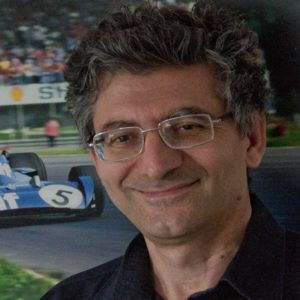 Mario Felice Tecce | Racing as a Paradigm for Pursuing the Best – presented via Zoom
Mario Felice Tecce | Racing as a Paradigm for Pursuing the Best – presented via Zoom
Dr. Tecce received his M.D. and PhD. at the University of Naples, Italy, and is currently full professor of Biochemistry at University of Salerno. Besides his molecular research about cancer mechanisms, he explored race car driving as a major reference paradigm of pursuing the best and of free will exercise. Having a strong interest and deep passion for car racing, he analyzed Formula One seasons of the last fifty years and suggests that race car driving can be a major example of general life choices between good and bad in a joint competition to pursue the best possible.
Roundtable: Timothy Robeers, Mike Stocz, Katya “Kate” Sullivan | Aspects of Media Treatments of Motor Racing Topics – presented via Zoom
 Dr. Timothy Robeers is currently working as a Research & MarCom Manager at b²sense in Brussels, Belgium. Following a career in academia, he remains affiliated with the department of communication sciences at Antwerp University, Belgium and combines extensive expertise in market & communication research, social and environmental sustainability, and their applications in motorsport and media. Besides having participated as a driver and team-owner in rally raids across Africa, Dr. Robeers has also consulted for a range of motorsport businesses and organizations including Formula E and the Fédération Internationale de Motocyclisme. Additionally, he is a co-founder and Assistant Editor for the Journal of Motorsport Culture & History.
Dr. Timothy Robeers is currently working as a Research & MarCom Manager at b²sense in Brussels, Belgium. Following a career in academia, he remains affiliated with the department of communication sciences at Antwerp University, Belgium and combines extensive expertise in market & communication research, social and environmental sustainability, and their applications in motorsport and media. Besides having participated as a driver and team-owner in rally raids across Africa, Dr. Robeers has also consulted for a range of motorsport businesses and organizations including Formula E and the Fédération Internationale de Motocyclisme. Additionally, he is a co-founder and Assistant Editor for the Journal of Motorsport Culture & History.
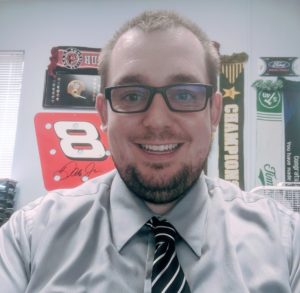 Mike Stocz is a senior lecturer of sport management & leadership at the University of New Hampshire. He is one of the founding members and Editor-in-Chief of the Journal of Motorsport Culture & History. Mike’s previous works have included a bottom up framing analysis of the Tony Stewart-Kevin Ward Jr. incident on Facebook, as well as works within legal issues in K-12 sport administration, an economic funding model for college athletics, and a textual analysis of the American Outlaws fan group in the digital space.
Mike Stocz is a senior lecturer of sport management & leadership at the University of New Hampshire. He is one of the founding members and Editor-in-Chief of the Journal of Motorsport Culture & History. Mike’s previous works have included a bottom up framing analysis of the Tony Stewart-Kevin Ward Jr. incident on Facebook, as well as works within legal issues in K-12 sport administration, an economic funding model for college athletics, and a textual analysis of the American Outlaws fan group in the digital space.
Kate Sullivan is an Assistant Professor in Strategy & Enterprise at Scotland’s Heriot-Watt University, where she teaches a range of entrepreneurship and management courses as well as conducts research as a well-being and performance psychologist. In addition to her academic career, she has worked in the classic car industry for more than a decade. Ms. Sullivan personally holds several regional land-speed records.
In the roundtable, she explores the forgotten history of alternative power vehicles in motorsport, demonstrating that the current concerns over the environmental impacts of auto racing –and the attendant hand-wringing over its future –are far from new. Showing how alternative power vehicles have been part of society’s need for speed from the beginning, she will suggest how to harness this worry to instead create new buzz for racing.
Afternoon Sessions, 1:30 p.m. to 5:00 p.m.
Quinn Beekwilder, Trey Cunningham | Lessons Learned: A Pedagogical Approach to Teaching Motorsports History
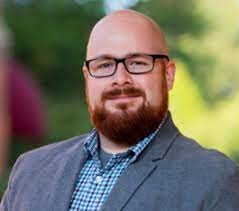 Quinn Beekwilder is an Assistant Professor and Coordinator of the motorsport management degree at Belmont Abbey College. Having come from a decade of working at Charlotte Motor Speedway, he wanted to give back to the motorsport program at Belmont Abbey that got him there in the first place. He has a unique perspective of being one of the first graduates of the program and is able to address concerns and direct the program for the greater benefit of current students. Motorsport history has always been a passion of Mr. Beekwilder. The approaches that he takes to the course are crafted to focus on the historical development of NASCAR while incorporating experiential activities to support the curriculum. The students refer to Mr. Beekwilder as the fast van driver.
Quinn Beekwilder is an Assistant Professor and Coordinator of the motorsport management degree at Belmont Abbey College. Having come from a decade of working at Charlotte Motor Speedway, he wanted to give back to the motorsport program at Belmont Abbey that got him there in the first place. He has a unique perspective of being one of the first graduates of the program and is able to address concerns and direct the program for the greater benefit of current students. Motorsport history has always been a passion of Mr. Beekwilder. The approaches that he takes to the course are crafted to focus on the historical development of NASCAR while incorporating experiential activities to support the curriculum. The students refer to Mr. Beekwilder as the fast van driver.
 Dr. Cunningham is Associate Professor and Chair of the Department of Sport and Motorsport Management at Belmont Abbey College. Belmont Abbey College offers a four-year undergraduate academic program designed to prepare aspiring professionals and leaders for a career in the motorsport industry. The presentation will discuss Belmont Abbey College’s pedagogical approach to introducing and reinforcing the history of motorsports throughout the entire curriculum. Moreover, Dr. Cunningham’s presentation will discuss the many perceived lessons learned and ever-evolving adjustments made along the way in the Department’s efforts to successfully prepare students to become lifelong learners of the history of motorsports.
Dr. Cunningham is Associate Professor and Chair of the Department of Sport and Motorsport Management at Belmont Abbey College. Belmont Abbey College offers a four-year undergraduate academic program designed to prepare aspiring professionals and leaders for a career in the motorsport industry. The presentation will discuss Belmont Abbey College’s pedagogical approach to introducing and reinforcing the history of motorsports throughout the entire curriculum. Moreover, Dr. Cunningham’s presentation will discuss the many perceived lessons learned and ever-evolving adjustments made along the way in the Department’s efforts to successfully prepare students to become lifelong learners of the history of motorsports.
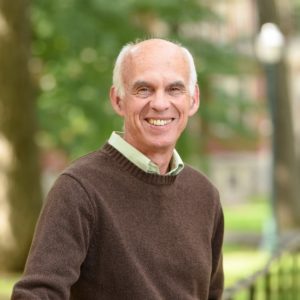 Elton G. McGoun | Putting the “Sports” in “Sports Cars”
Elton G. McGoun | Putting the “Sports” in “Sports Cars”
Skip McGoun is an Emeritus Professor of Finance at Bucknell University and a Visiting Professor at the University of Ljubljana in Slovenia and at the University of Donja Gorija in Montenegro. He has presented and published on the history and culture of finance as well as automobile history and culture and served as Area Chair of the Vehicle Culture Section of the Popular Culture Association. He considers the two senses of the word “sports” — competition and recreation — and their relative roles in the creation of the class of vehicles known as “sports cars.”
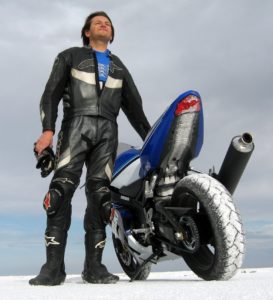 Jonathan Summers | Motor Racing as a Mediated Experience
Jonathan Summers | Motor Racing as a Mediated Experience
Jon Summers is a teaching assistant and guest lecturer at Stanford University. He’s an independent automotive historian, podcaster, blogger and Pebble Beach Docent. A lifelong car and motorcycle enthusiast, Jon’s recent work has focused on historiography in motor racing, delving into not just what happened, but how these stories were preserved, by whom and why. From text and still photography through television and now to YouTube, Goodwood and Gran Turismo, Jon’s presentation examines the evolution of the methods in which the stories of motor racing have been told and the history preserved.
Joe Freeman | Second to One
Joseph Freeman is an automotive historian, writer, publisher, vintage racer, and racing car collector, well known in the racing world for his expertise on automotive subjects and as owner of the award-winning publishing house Racemaker Press of Boston. His talk will cover the history of some of the earlier champion race drivers who but for a stroke of bad luck, an unfortunate last-minute mistake, or just the intervention of fate, were never able to win America’s greatest race, the Indianapolis 500. Mr. Freeman’s reflections are based on his recent book Second to One: All But for Indy.
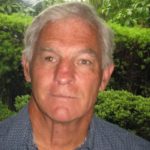 Trevor Lister | Truth is the Daughter of Time – presented via Zoom
Trevor Lister | Truth is the Daughter of Time – presented via Zoom
Trevor entered the University of Canterbury on a public service scholarship, graduating with a double degree in Physics and Mechanical Engineering. On graduation, he worked in the Ministry of Transport in the setting and administration of Motor Vehicle Safety Standards, primarily on natural gas and LPG vehicle standards. This led to a secondment to a national research and development organization where he was responsible for research on a wider range of alternative motor vehicle fuels. It led also to an international consultancy in that area, including a stint as the New Zealand delegate to the International Natural Gas Vehicles Association.
Upon completion of that work, he returned to his foundation automotive design skills and his motorsports hobby. At which point he became an inspector and certifier on other peoples’ projects, as well as designing, building and racing his own cars. In semi-retirement, he took up teaching and tutoring pre-apprenticeship students in Mathematics, Science and Automotive Engineering. In full retirement, he assumed the role of Editor of the Newsletter of The Classic Motor Racing Club of New Zealand. That is when, searching for Newsletter stories, he came across the work of Donald Capps, and their common interest in old Maseratis. The upshot of working together on the histories of these cars became the main point in the presentation to this symposium. It appears that Maserati in the 1950s identified their competition cars by their engine numbers, not their chassis numbers, and that this process allowed for individual cars to have carried more than one identity. This has implications for the provenance of these cars.
